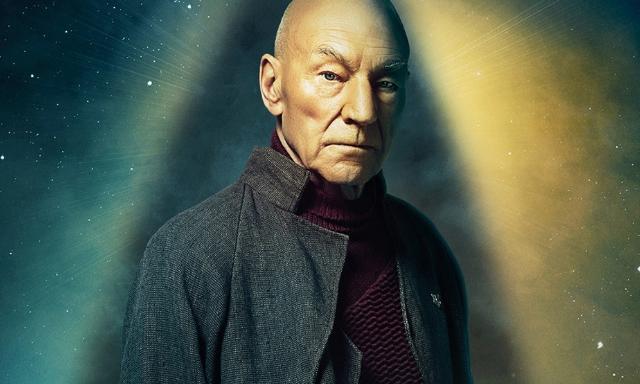Legacy sequels, be it on TV or movies, invariably are bound to grapple with common themes.
It's practically baked into its very existence, with questions about mortality, unfinished business, legacy itself, all struggling to rectify itself with making itself relevant in the first place. When it's done successfully, the question doesn't even need to present itself as to why it's there. It feels natural, vital and so purposeful that you're almost left wondering why it's been so long in the first place.
'Star Trek: Picard', in a lot of ways, couldn't have happened were it not for the times we live in. That's not to say for a second that it tries to address our times, but more that it embraces the idea of broken promises, lost futures, and the idea of the breaking of faith in institutions we held to be inviolate. The interim between when 'Star Trek: Nemesis' landed in screens - the last time that Patrick Stewart played Jean-Luc Picard - and today has seen seismic shifts in what we know and understand about our world. We no longer have the same optimism that defined so much of 'Star Trek: The Next Generation'. Indeed, we're facing into the reality that days ahead will not be as safe or hopeful as it's been made out to be.
So how does 'Star Trek: Picard' telegraph that, while still holding fast to the idealism? Can those two be rectified? From the three episodes we saw, it's hard to say, but one thing's for certain - nobody is ready to throw in the towel. There's a sense of earnestness and belief in each and every line of the three episodes we saw, and each performance therein, that speaks to that. The first episode, for example, reveals why Jean-Luc Picard walked away from Starfleet, and why he's now living a life of a vineyard farmer.
Stewart's age and sense of presence compliments this, as he now no longer has the rigid stature of the bridge officer. He's much more vulnerable now, far more aware of his limitations, and even prone to mistakes. He's - whisper it - human. This is something that's plagued 'Star Trek' for so long; the characters are far too perfect to exist in the real world, that there's no conflict between them, and that they can simply do no wrong in the eyes of the audience.
Without giving too much away from the second and third episode, the story opens up and begins to examine loose strands from 'Star Trek: The Next Generation' and how the future isn't quite so perfect as it once was. It doesn't necessarily pander to the idea that it must be gritty, or that there has to be some kind of existential threat, but more that it's all lost its way. In that, the question is whether you withdraw, or do you step forward and try to shunt it back on the right track. Or is that hubris to even think in such a way?
Like the best episodes of 'Star Trek: The Next Generation', 'Picard' - from what we've seen so far - is trying to grapple with these big ideas, and make it exciting in doing so. There's some very well-crafted action beats, and you can really tell that money, time and effort is being expended on this to make it as good as it possibly can be. Moreover, the performances from all concerned show that it's been well cast, well written and well directed.
Compared to the likes of 'Star Trek: Discovery', which had a rocky first season and a middling to decent second season, 'Star Trek: Picard' steps off the transporter pad (sorry) fully formed and realised.
Here's hoping it lasts.









































































